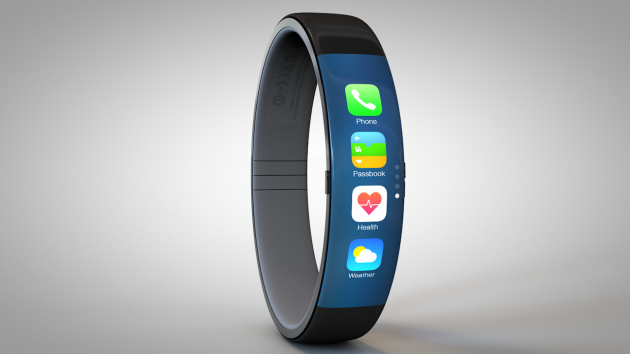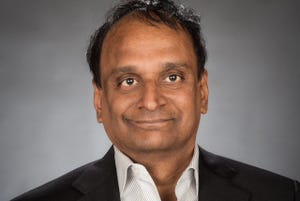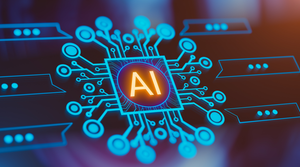February 20, 2014
Some say mobile health could make half of existing medical devices obsolete. Some say even more.
And while there is plenty of debate on this subject, many say a change is gonna come to the medtech industry.
"Perhaps the bottom line is the device market of the future will be markedly different than the past," says Brian Baum, founder and CEO of Baltimore-based health data startup vitaTrackr Inc.
People might call it by different names: mobile health, telehealth, connected health, or iHealth. But the trend of gathering health information from people on the go--with the information analyzed and shared with health providers--appears to be a topic that is much talked about.
A discussion MPMN started in the Medical Devices Group on LinkedIn--entitled "Is Apple going to eat medical device companies' lunch?"--had more than 30 comments by Thursday, including Baum's. A recent informal MPMN reader survey found many saying that remote patient monitoring will be the most important medical device trend of 2014.
Big name high tech and telecom companies are getting involved.
Apple and Google executives have each been meeting with the FDA. Apple appears to be considering healthcare-related features for the iWatch and may even be developing heart attack-sensing technology, while Google says it is developing a glucose-monitoring contact lens.
|
Apple appears to be considering healthcare-related features for the iWatch and may even be developing heart attack-sensing technology. (iWatch concept by Todd Hamilton) |
San Diego-based Qualcomm has been especially seeking dominance in the mobile health space. And Dallas-based AT&T this month appointed digital health notable Eric Topol, MD, as its new chief medical advisor.
Despite the new entrants, Baum is bullish both on what he calls "real" medical devices and "casual" medical devices.
"The reality is we have a physician shortage, we are bringing more people into the health system. ... So, the demands on the individual are likely to ramp up relative to health monitoring so that limited clinical resources can be more effectively deployed," Baum says.
Baum also doesn't think Apple, Google, and the like will put traditional medical device designers out of work: "I doubt Apple will task their iPod experts to develop medical devices. Rather, they will likely hire med device industry talent to move them in this direction."
Mobile devices provide a great platform for the next generation of medical devices, but there is also specialized knowledge associated with sensor technology, real time signal processing, etc., says William Koppes, senior vice president of commercial development and manufacturing at Bethesda, MD-based BrainScope Co. Inc.
"I find it unlikely that Apple, Google or other similar companies will develop [competencies] in the sensors and specialized signal processing required for the development of medical devices used for diagnosis, monitoring and therapy. Large distributed information management system such as Electronic Medical Records are another story," Koppes said in the Medical Devices Group discussion.
Much of the discussion seemed to suggest that the mobile health applications being suggested really aren't that invasive, and are more about collecting information and empowering health providers and average people to use the information to improve their health.
The impact on traditional device companies might be more indirect: People are better able to manage their health, develop less serious health conditions, and then don't need as many traditional medical devices (a good problem to have overall as a society, but still a problem for device companies).
Paul Stein, research director at Irvine, CA-based Onciomed, thinks the talk of serious medical device industry disruption, with countless obsolete devices, is "monstrous hype." (He repeated the statement again in all caps.)
Stein mentioned pacemakers to make a point, saying that it is impossible to have a universal controller for all of them in the hospital if an emergency arose.
"The pacemakers are all different from manufacturer to manufacturer, in design, features, and software, and only the individual manufacturer's programmer works with its own pacemakers. Hence, there need to be half a dozen desktop computer-sized programmers sitting around on the side taking up space," Stein says.
"If there is absolutely no cooperation between just a single, small set of companies on one little product type, how can outside, non-medical device companies make any significant inroads into that world beyond what they only know what to do?" Stein said in the LinkedIn discussion. "So, Apple, Samsung, Verizon, AT&T, etc., data stream away on your little rectangular thumb-driven stareboxes. ... Unless you acquire a Medtronic or a St. Jude Medical, leave the therapeutic medical devices to the professionals."
Even if the use of mobile-health technology is ultimately be a game changer in medicine, it might not be a panacea, says Michael McCarthy, MBA, BS, RRT-NPS, a respiratory therapist at Sourasky Medical Center. "As a hands-on healthcare practitioner, I can tell you, this will not reduce costs," he says. "It will probably improve care but you still need people to take care of patients. Data is only as good as the quality and interpretation of that data. I can put a pulse oximeter in a watch and broadcast it to China but if someone qualified is not there to make sure there is no aritifact to disrupt the signal then the data is useless and possibly harmful if misapplied. And this is only one very small, routine application in the healthcare arena."
Chris Newmarker is senior editor of MPMN and Qmed. Follow him on Twitter at @newmarker.
About the Author(s)
You May Also Like



.png?width=300&auto=webp&quality=80&disable=upscale)